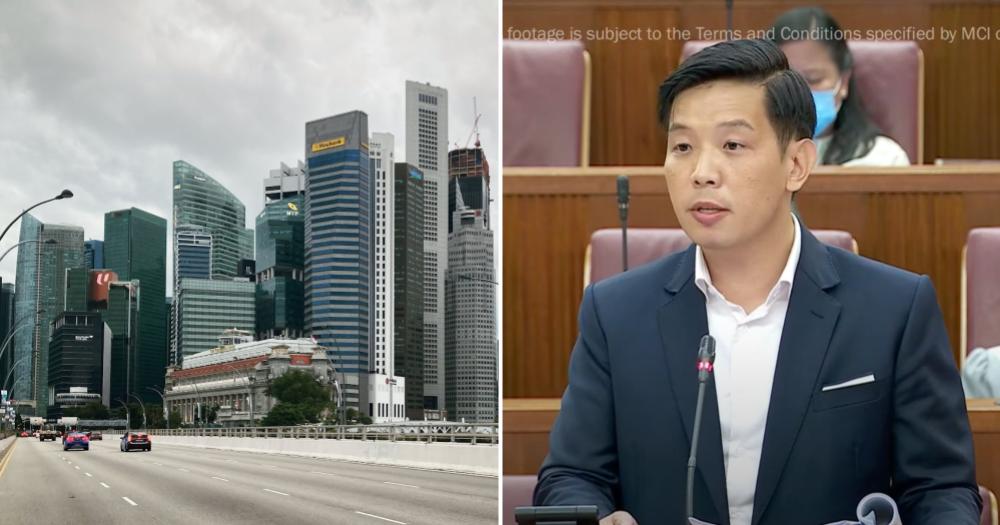Follow us on Telegram for the latest updates: https://t.me/mothershipsg
Economic activity in Singapore "has remained resilient" amid an increasingly challenging global economic environment, Minister of State for Trade and Industry Alvin Tan said in Parliament on Jul. 4.
Tan noted a "significant rise in inflation", but pointed to figures that indicated "a continued recovery from the pandemic", such as a 3.7 per cent GDP growth on a year-on-year basis in the first quarter of 2022.
Overall, MTI expects the Singapore economy to expand by 3 to 5 per cent in 2022, with growth likely to come in at the lower half of the forecast range, Tan shared.
He added that growth in 2023 is expected to moderate further, and a recession is not expected in Singapore in 2023, at this stage.
Singapore is also not expected to go through stagflation, a situation where economic growth is stagnant and there is high unemployment, along with high inflation.
"Significant" risks in global economy
However, Tan said "risks in the global economy remain significant", such as the possibility of further escalation in the Russia-Ukraine conflict, as well as the Covid-19 pandemic, among others.
He also cited a global economic slowdown and "strong external inflationary pressures".
"As a small, open economy, Singapore cannot be insulated from these external developments," said Tan.
Significant rise in inflation, but economy "remained resilient thus far"
Referring to the Monetary Authority of Singapore (MAS)'s core inflation metric, as well as "CPI – All Items inflation", a measure of inflation that factors in costs of private transport and accommodation, Tan shared some inflation-related statistics:
- MAS Core Inflation increased by 3.6 per cent, year-on-year in May, from 3.3 per cent in April, and 2.5 per cent in the first quarter.
- Core Inflation for 2022 as a whole is expected to average out at 2.5 to 3.5 per cent.
- "CPI – All Items" inflation rose to 5.6 per cent year on year in May, from 5.4 per cent in April and 4.6 per cent in the first quarter.
- "CPI – All Items" inflation is expected to average out at 4.5 to 5.5 per cent.
However, the economy has "remained resilient thus far", said Tan, citing the following statistics:
- 3.7 per cent GDP growth on a year-on-year basis in the first quarter of 2022.
- Non-oil domestic exports rose by 9.3 per cent in April and May, year-on-year.
- Industrial production rose by 10 per cent in April and May, year-on-year.
- Retail sales volumes increased by 8.4 per cent in April year-on-year.
- F&B sales volumes increased by 6.9 per cent in April year-on-year.
He also mentioned that for the rest of the year, weaker external demand will be mitigated by the recovery of international travel, and domestic demand with the lifting of Covid-19 restrictions.
Tan also outlined government policies to address the economic challenges ahead, namely:
- Maintaining a stable macroeconomic environment, and tightening monetary policy to temper imported inflation.
- Providing "immediate and targeted relief to low-income and vulnerable Singaporeans" through a S$1.5 billion support package.
- Continuing to "attract investments and foster new growth engines".
"Strong job creation and wage growth are the best ways to combat inflation," said Tan.
Top image by Nigel Chua and via MCI on YouTube
If you like what you read, follow us on Facebook, Instagram, Twitter and Telegram to get the latest updates.
